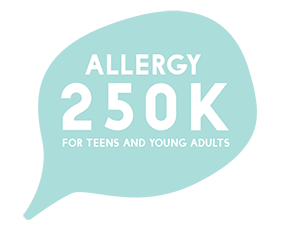Studying at university with a food allergy
Top Tips For University
- Make a friend in each of your classes, and tell them about your allergy and where to find your EpiPens®or Anapens®in case of an emergency.
- Pack food prepared at home as much as possible.
- Avoid eating in communal food courts – sit outside on the lawns instead.
- Know where the campus medical services are located. Know the closest campus gates to the buildings you are commonly in, when on campus.
"Make friends, and make sure they know about your food allergy, and where they can find your EpiPen®s or Anapen®s. "
Starting University
The start of the university year is an exciting time. University life is quite different to high school. It is highly individualised, you will meet lots of new people, and your lecturers and tutors will change every semester/trimester. Therefore, you have the responsibility for managing your food allergy, especially until you establish good friendships. You will need to make decisions on everyday circumstances that you might not have had to make whilst in high school.
Day to Day
In high school, every one of your teachers may have known about your food allergy. At university you will most likely have different lecturers and tutors for each of your classes each semester or trimester. You will also only see each of your lecturers/tutors for an hour or two each week (depending on your degree and contact hours). Due to the scale of universities it’s unrealistic to tell each of your lecturers/tutors about your food allergy.
As an adult you need to have many strategies in place to help you manage your food allergy. These strategies may be tweaked in different situations. Knowledge of the signs and symptoms of an allergic reaction and best practise management in an emergency will always be the same no matter where you are. Be sure to understand your ASCIA Action Plan. If you don’t understand it, ask your doctor or health educators at Allergy & Anaphylaxis Australia to step you through it.
Learn more about the signs and symptoms of an allergic reaction and how to give an adrenaline injector.
Throughout your degree you will see the same students in a lot of the core classes you take. Make some good friends and tell them about your food allergy, and what to do in an emergency as they may be around you in an emergency situation.
You may also spend a lot of time at university on your own (between classes, studying in the library, etc). You need to have a plan in case you are alone when having an allergic reaction. View the Allergy & Anaphylaxis Australia resources on Emergency treatment – being prepared.
Find out which are the closest campus entry points to the buildings you spend majority of your time in. Knowing this information is crucial so that ambulance staff can find you in a timely manner in the event of an emergency. It’s a good idea to actually visit the campus medical services to know where they are and how they manage anaphylaxis on campus. Keep in mind you are to lie down or sit down on the ground in an emergency. You should not walk to the medical service. In an emergency, you or someone around you can call triple zero for an ambulance once your adrenaline injector has been given, following instructions on your ASCIA Action Plan.
Eating on Campus
While there may be plenty of food outlets and/or cafés on campus, it is safer for a person with food allergy to bring their own food, which is safe for them, from home.
You might also prefer to sit outside on a university lawn or bench – rather than in a communal food court or eating area, as there is less risk of cross contamination.
Tips for eating on campus:
- Take your own food from home, where possible.
- Carry wipes and clean down any surfaces before eating off them.
- Download an ‘on campus’ app that lists where you can find microwaves on campus. Choose a microwave that is not commonly used, and make sure to wipe it out before use. Always have the food in your container during heating.
If you do decide to eat a meal on campus, remember to clearly disclose your food allergy when ordering food. Follow the same management strategies that you do when you are eating out. Don’t fall into the trap of disclosing your allergy once or twice and buying the same food thinking it will be fine because you have had it numerous times before. Manufacturers change ingredients and chefs do too. Read more about eating out with food allergy.
Alternatively, if your university has a supermarket or newsagency on campus, you can purchase snack items from there. Make sure to read the ingredient label in the shop, prior to purchasing the food. Read more about reading food labels.
"Make friends, and make sure they know about your food allergy, and where they can find your EpiPen®s or Anapen®s. "

